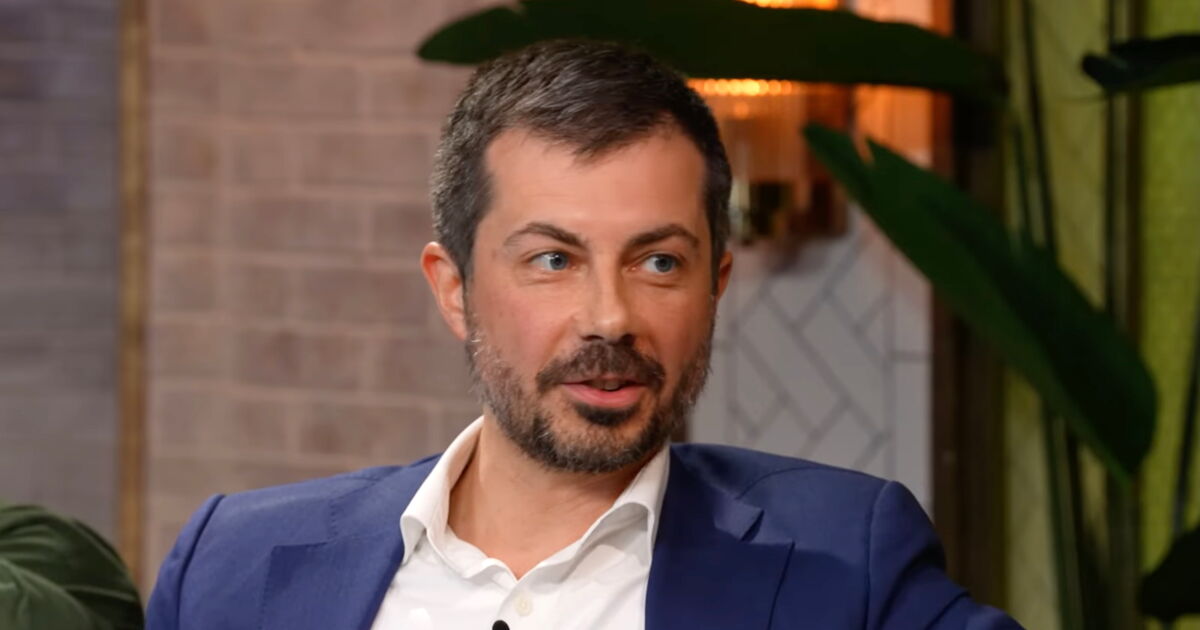
Adoption expert Ryan Hanlon is not happy with the way former Secretary of Transportation Pete Buttigieg recently described the U.S. adoption process and says he “misrepresented how private adoption works.”
Buttigieg adopted twins Gus and Penelope with his husband, Chasten Buttigieg, in 2021. During a recent appearance on the “Flagrant” podcast, he claimed there are different lists for prospective parents based on their racial preferences for their future children.
Related
Right-wing commentator stoops to pure cruelty about Pete Buttigieg’s family
He also implied gay people shoudn’t have babies unless they enter into a straight marriage.
“By the way, anybody who says race is not a thing in this country should experience an adoption process where there are literally different lists,” Buttigieg said. “If you say that you want a white kid only, versus if you say that doesn’t matter. Like, literally a different list.”
Never Miss a Beat
Subscribe to our newsletter to stay ahead of the latest LGBTQ+ political news and insights.
Subscribe to our Newsletter today
He added, “The list for white kids is longer. Not only that, there was actually a discount, or you didn’t have to pay a deposit on the fetus. This is like, how it works. I couldn’t believe it.”
He also claimed there was a “discount” for parents who adopted Black children.
Hanlon – the president of the National Council for Adoption – responded to Buttigieg’s claims in an op-ed for The Hill, where he wrote that Buttigieg conflated private domestic adoption (the process through which he adopted his children) with statistics from the foster care system (where Black children are overrepresented and less likely to be adopted than white children).
“Private domestic adoption, which typically involves the voluntary placement of infants by their birth-parents, is a fundamentally different system from foster care, where children are placed due to abuse, neglect, or other issues,” he explained.
“The motivations, processes, and challenges differ profoundly between the two. Using data or dynamics from the foster care system to critique private adoption is not only misleading — it’s comparing apples to oranges.”
He called the idea that adoption agencies have lowered the costs associated with adopting Black children “concerning,” “unfounded,” and “damaging.”
“No credible agency bases its fees on the race of a child. To suggest otherwise is to malign the ethical professionals who work tirelessly to ensure every child is placed in a loving home.”
He said the number of parents waiting to adopt a baby far exceeds the number of babies being put up for adoption annually, and as such, there would be no reason to alter fees.
“In the U.S., only about 25,000 private domestic adoptions happen each year, yet hundreds of thousands of parents would be thrilled to grow their families this way,” he explained. “Because of this mismatch, there is no shortage of qualified families who are eager to adopt children of any race, ethnicity, and other attributes.”
That, plus the fact that birth parents get to choose the adoptive parents, means “birth parents can be choosy” and “adoption agencies would have no reason or incentive to charge less money for the placement of a Black child.”
Hanlon acknowledged that there is certainly room for reform in the adoption process, including a need for greater pre- and post-adopting support and stronger oversight. “There is an essential place for conversations about race in adoption as well,” he said, but added that “reform must begin with facts.”
“Mischaracterizations and sensational headlines about racial adoption lists both distract from real problems and stigmatize the people who have navigated the adoption process with good faith and integrity. Reducing adoption to a subject for culture-war shorthand risks alienating families who deserve understanding and support.”
Hanlon did say Buttigieg “offered some thoughtful reflections on parenting” in his discussion of adoption.
During his appearance on the podcast, he spoke about raising Black children as a white father. “You’re already constantly asking yourself, how can I be a good dad? And now it’s like, how can I be a good dad for kids that have a different racial identity than I do? How can I help them navigate that and what are the circumstances where there is nothing I can do to help them navigate that and I need to connect them to mentors and people in their lives?”
“The reality is, like, this is not a colorblind society, and, like, their lives will be affected in some way by their race — all of ours are — but one thing about being white is, you don’t have to think about the fact that – when you’re white, your racial identity is not something that you’re reminded of all the time in a way that they will be.”
“Our hope is by the time they’re old enough to even be wondering and thinking about these things… that they know that they are loved and that they are safe and that they’re growing up in a world that has so much possibility for them.”
NEW: Pete Buttigieg opens up about his black adopted children, says there is a discount depending on whether you adopt black kids or white ones.
— Collin Rugg (@CollinRugg) April 23, 2025
"It was called a surprise adoption scenario. I was traveling. We got a phone call."
"Anybody who says race is not a thing in this… pic.twitter.com/0osBYEifin
Subscribe to the LGBTQ Nation newsletter and be the first to know about the latest headlines shaping LGBTQ+ communities worldwide.